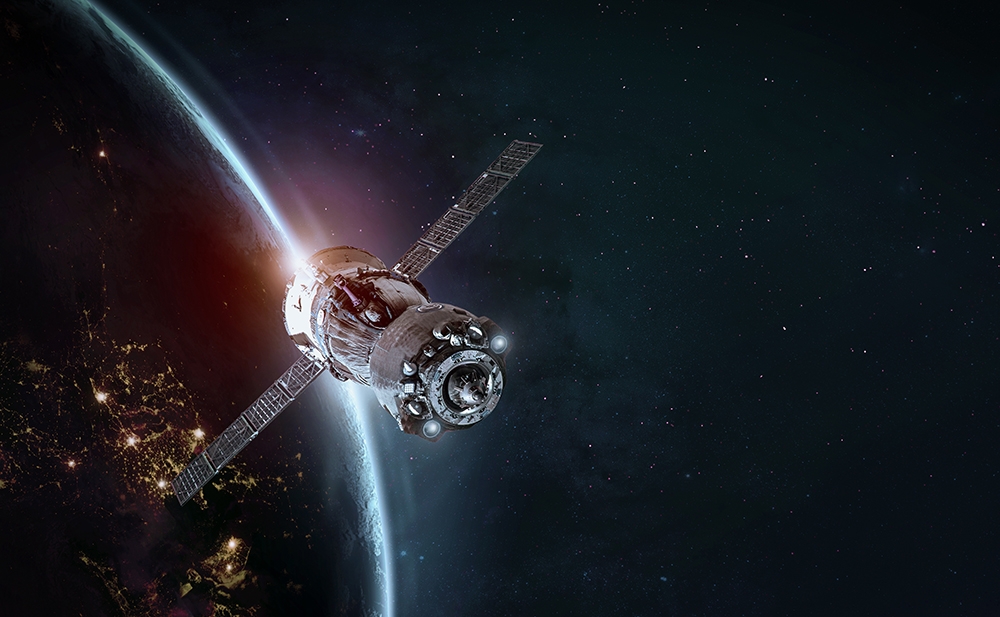Space industry rocketing ahead to 2030
Posted May 26, 2020

Australia will play a critical role in space exploration to the moon and Mars in the coming decade and our national industry will continue to grow quickly, creating huge economic benefits and job opportunities.
That’s the outlook in a report released by KPMG in May. 30 Voices on 2030 – The Future of Space features insights and predictions from diverse leaders in the Australian space industry.
Space and defence is one of four focus industry clusters at Lot Fourteen, which is also home to the Australian Space Agency; SmartSat CRC; private companies Myriota, Neumann Space, Inovor and SITAEL Australia; plus businesses and organisations in other sectors that work with the space industry. And in early 2021, the shared-facility Mission Control Centre and Australian Space Discovery Centre will be opening at Lot Fourteen, giving members of the public the opportunity to learn first-hand about the infinite possibilities of space.
South Australia has between 70 and 80 space businesses and organisations, including at least 20 businesses which started in the past five years.
Lot Fourteen State Project Lead Diane Dixon said Lot Fourteen’s space and defence focus was building on SA’s inherent strengths in this exciting sector, to create high value jobs and opportunities for local people, foster innovation and collaboration and attract private investment.
“The space focus at Lot Fourteen is helping to ensure that SA continues to play a role in the research and development of space technologies,” she said.
“These advances are not only contributing to space exploration but also benefitting many industries here on Earth, including mining, agriculture and natural resources management and can enhance the management of disasters, such as bushfires.”

Minister for Industry, Science and Technology Karen Andrews.
Leaders featured in the KPMG report include Federal Industry, Science and Technology Minister Karen Andrews, Australian Space Agency head Dr Megan Clark; and Flavia Tata Nardini, co-founder of Fleet Space Technologies, based in Adelaide. Ms Nardini is also a member of the SA Entrepreneurship Advisory Board, one of the reference groups which provides input to the development of Lot Fourteen as a national leader in entrepreneurship.
Minister Andrews said the career and economic opportunities being created in Australia by the space industry now would continue to grow.
“Australians will be surprised by the variety of people and businesses who will benefit from this emerging ecosystem, with the sector tripled in size (by 2030) to $12 billion a year with job opportunities for 30,000 people,” she said.
“The space industry is no longer just the domain of governments, it’s a fast-growing and fiercely commercial sector, driven by the falling costs of launch and rapid technology development.”
Minister Andrews said one of the Australian Space Agency’s key roles was to open a dialogue with Australian businesses and universities.
“Their headquarters at Lot Fourteen…allow Agency staff to walk around and engage with industry partners also based there, like the SmartSat CRC and Myriota,” she said.
Dr Clark said the next 10 years would offer great opportunities for Australia and its role in space.

Australian Space Agency Head, Dr Megan Clark with Premier Steven Marshall at the opening of the Agency’s headquarters at Lot Fourteen.
“By 2030, we will be participating in joint space missions with commercial partners and international space agencies such as NASA and the European Space Agency,” she said.
As an example, Dr Clark said space was becoming a ubiquitous part of Australia’s communication networks, through use of laser light and global positioning satellites.
Australia would also be able to adapt its knowledge of robotics in the oil and gas industries to use these technologies on other planets.
“While some may be concerned about the impact of technology on jobs, I feel we’ll actually be creating jobs – jobs we can’t fully imagine today,” Dr Clark said.
“Jobs building and controlling robots that are not on Earth, but on the lunar or Martian surface or on celestial bodies that we’re exploring.
Dr Clark said it was a misconception that jobs in the space industry were solely focused on STEM, as opportunities were being created for a broad range of professions, from ethicists to electricians.
“Giving advice to our younger generations now, I think the most important thing is to stay curious, learn about what the industry is doing and make sure that you follow your passion,” she said.
Ms Nardini said space industry startups would play a major role in space exploration.
She said unlike the mission to put men on the moon, the quest for Mars would not be government led, but achieved by an interactive relationship between startups and larger businesses.
“Australia will have an important role to in space exploration and colonization with its expertise in the development and use of remote asset management,” Ms Nardini said.
“I believe getting to Mars is a distinct possibility and expect, in the next ten years, to see society much more involved in the quest.”
Lot Fourteen is the centerpiece of the $551 million Adelaide City Deal investment program by the Commonwealth and state government, to help grow the local innovation economy. Under this program, $6 million each has been allocated to the Mission Control Centre and the Australian Space Discovery Centre, in addition to other upcoming major projects at Lot Fourteen.
Great things come to those who subscribe
Subscribe
"*" indicates required fields
Adelaide 5000
Developed by Frame Creative
Design by The Sideways Theory
Design by Sixth Street Design
Developed by Frame Creative
© Lot Fourteen All Rights Reserved

